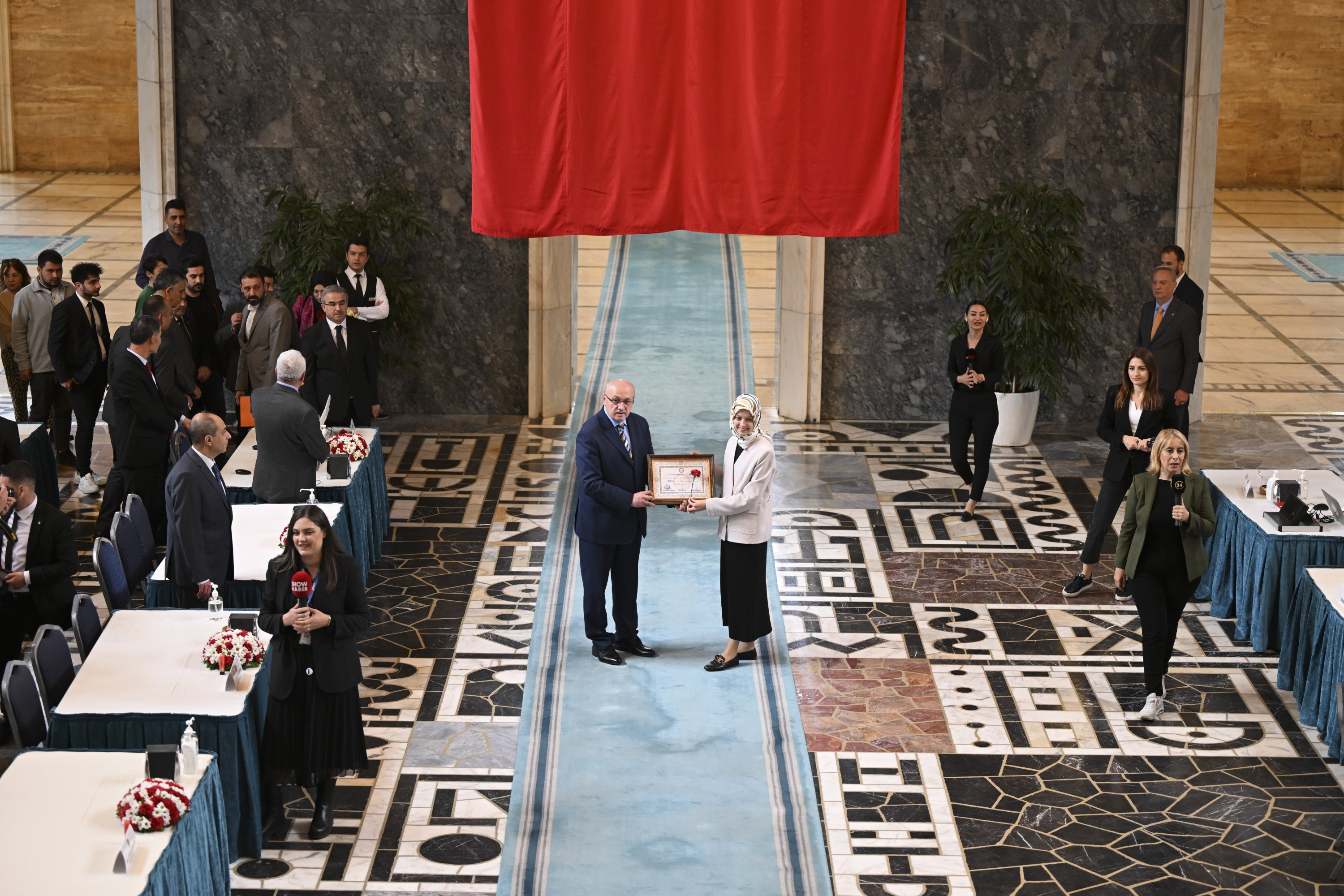© Turkuvaz Haberleşme ve Yayıncılık 2024
Türkiye’s 600-member Parliament is starting to take shape as the Supreme Election Council (YSK) moves to announce the official results of May 14’s legislative vote before the 28th term kicks off on June 2.
Of the 36 political parties that competed for parliamentary seats, a total of 15 will be making up Parliament in its new term in five separate groups but most of their leaders are to be absent from the assembly after failing to be elected as lawmakers.
Once the YSK confirms new lists, which will feature 335 newcomers, parliamentarians will convene in Ankara this Friday to be sworn in at a special session likely to last over nine hours and be overseen by interim Parliament Speaker Devlet Bahçeli, the head of the Nationalist Movement Party (MHP) and the oldest member at 75.
By the end of the working week, the election body will also have announced President Recep Tayyip Erdoğan as the 13th president of Türkiye per the results of Sunday’s runoff election where he claimed victory against his rival Kemal Kılıçdaroğlu by clinching 52.1% of the vote.
Erdoğan has remained Türkiye’s 12th ruling president and become the 13th in the line of elected leaders. The people have directly elected the Turkish president since the constitutional amendment was made in 2007. Erdoğan’s first win in presidential polls was in August 2014.
This weekend, he will receive his certificate of election from his People’s Alliance partner Bahçeli at Parliament and take his oath before all sworn-in members.
Erdoğan had 15 ministers in his Cabinet running for Parliament on May 14, including Vice President Fuat Oktay, who will drop out of the presidential Cabinet once they swear in as lawmakers due to the rule on the division of powers.
In order to keep the ministers on duty for a little while longer, however, Ankara is mulling a “delay” in the meantime, in which Oktay and the 15 ministers would refrain from swearing in this Friday and wait for the general assembly session next week.
Parliamentary bylaws allow lawmakers that fail to attend special sessions to take their oaths in the following session.
After Parliament seats are appointed, Erdoğan will be assembling a new Cabinet, which he previously indicated would consist of “dynamic and young people” in a way that would “resonate with the aspirations of the new generation.”
He also packed the AK Party's ranks with young members, marking a 65% change among its lawmakers to foster key affirmative action for women and youths.

As for the six-party opposition bloc, composed of Kemal Kılıçdaroğlu’s Republican People's Party (CHP), the Good Party (IP), the Democracy and Progress Party (DEVA), the Future Party (GP), the Felicity Party (SP) and the Democrat Party (DP), their lawmakers stand to be represented at Parliament without the party leaders due to their tactical calculations ahead of polls.
The coalition, if elected, had aimed for a return to a parliamentary system of government that would appoint the heads of the five parties and the CHP’s Istanbul and Ankara mayors as presidential aides to Kılıçdaroğlu and reintroduce the prime ministerial post.
Neither Kılıçdaroğlu nor the IP leader Meral Akşener, DEVA Chair Ali Babacan, GP Chair Ahmet Davutoğlu, SP Chair Temel Karamollaoğlu or DP Chair Gültekin Uysal have the right to work as lawmakers in the upcoming term.
The bloc has also lost the majority in Parliament to the People’s Alliance, helmed by Erdoğan’s ruling Justice and Development Party (AK Party) in partnership with the MHP and two other smaller parties, the Free Cause Party (HÜDA-PAR) and the New Welfare Party (YRP).
The Erdoğan and Bahçeli-led coalition won 49.4% of the votes, securing 323 seats in total while Nation Alliance covered 212 seats with 35% support.
In the new parliamentary term, only the MHP and the Peoples' Democratic Party (HDP), a party known for alleged aiding and abetting of the PKK terrorist group, will have their leaders steering lawmaker groups.
Kılıçdaroğlu’s CHP and its biggest partner the IP will be electing a group chair out of their present lawmakers, with the CHP’s Manisa Representative Özgür Özel emerging as the most likely candidate.
Meanwhile, the DEVA, the GP, the SP and the DP are rumored to be considering joining forces to form a single group, which requires the participation of at least 20 lawmakers, according to parliamentary bylaws.
The DEVA has produced 15 lawmakers in legislative elections, with the GP and the SP bringing 10 lawmakers each and the DP grabbing three seats.
Once all lawmakers are sworn in, Parliament will go on a five-day hiatus to elect a speaker. On the sixth day, possibly next Tuesday, the assembly will convene to vote for a speaker out of 600 members.
The new Parliament speaker that will replace incumbent Mustafa Şentop will likely be from the AK Party group since the People’s Alliance holds the most seats. The party is expected to complete the election in the third round where the condition for qualified majority is lifted.
According to rumors in party circles, the names of Ankara Representative Fuat Oktay and Şanlıurfa Representative Bekir Bozdağ, the current justice minister, are in the hat for the post.
